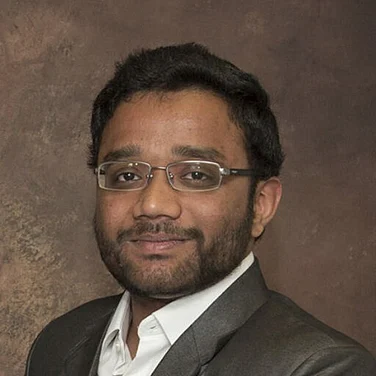In an era defined by rapid technological advancement, the integration of Artificial Intelligence (AI) into education is not just a trend—it is a fundamental shift that is reshaping how learning happens across the globe. From personalized lesson plans to intelligent platforms that support teachers, AI-powered tools are transforming classrooms in ways that were once unimaginable. Standing at the forefront of this transformation is Dr. Geeta Sandeep Nadella, a distinguished researcher and scholar whose work is helping to shape the trajectory of integrating complex system integrations in educational technology in the United States and beyond.
With a background spanning Artificial Intelligence, Cybersecurity, and Human-Computer Interaction, Dr. Nadella has built a career at the intersection of quality assurance, technology and society. A Senior Member of the IEEE and member of HKN, he also serves on the IT Advisory Board at the University of the Cumberlands and as Treasurer for IEEE Region 3’s ENCS chapter. These leadership roles reflect the recognition he has earned from peers and institutions alike, underscoring his influence in academic, professional, and applied settings.
Dr. Nadella’s research is notable for blending rigorous methodology with practical application. One of his most impactful studies examined how high schools across the U.S. use learning management systems (LMS) and how these platforms succeed—or fail—in delivering meaningful results. “Many educators face persistent challenges with the information quality and system quality of their LMS platforms,” he explained during our discussion. “These aren’t just technical glitches—they directly affect teachers’ ability to deliver lessons effectively, and ultimately, they shape student outcomes.”
His study drew on data from hundreds of educators, applying advanced techniques to uncover what truly drives success in e-learning adoption. The findings were clear: while the technical robustness of a system matters, the most critical factor lies in the quality of information and the systems that are being delivered. “Simply having a functional system isn’t enough,” he noted. “What matters most is that the content is accurate, relevant, and updated, and that schools provide the organizational support teachers need for not only to use these systems, but also bridging the digital divide gap between the stakeholders. Without that, even the best tools will fall short.”
This evidence-based approach has earned Dr. Nadella wide recognition. His research is published in high-ranking journals such as MDPI and Elsevier and has already accumulated hundreds of citations, with much of that impact coming in just the past few years. Beyond education, his scholarly contributions extend to healthcare, cybersecurity, and artificial intelligence, showing the breadth of his influence across disciplines.
Yet what makes his work especially relevant now is the practical guidance it provides to policymakers and school leaders. By identifying where technology investments should be concentrated—improving information quality, strengthening institutional support, and providing professional development—his research offers a roadmap for school systems grappling with how to implement AI responsibly.
Dr. Nadella is particularly passionate about the broader implications for the United States. “If we invest wisely in AI-driven education now, it doesn’t just benefit individual students,” he said. “It positions the entire nation at the forefront of global innovation. A strong education sector means a stronger workforce, more competitive industries, and ultimately, a stronger America. Education is the backbone of national progress, and AI can be the catalyst that keeps the U.S. ahead.”
When asked about the global implications of his findings, Dr. Nadella spoke with equal conviction. “We’re at a point where AI can help bridge significant educational gaps,” he explained. “In the U.S., the focus is on making learning more equitable and personalized. But globally, especially in developing regions, AI-powered e-learning and micro-credentials can bring high-quality education to students who might otherwise never have access. Imagine adaptive platforms delivering lessons in local languages to rural communities, or AI tutors supporting students where teachers are scarce. That’s the kind of democratization of education we should be working toward.”
His vision also comes with a measured understanding of the challenges ahead. While he acknowledges the promise of AI in creating personalized learning environments, he emphasizes that technology must serve as an aid to educators, not a replacement. Ethical concerns, data privacy, and the readiness of institutions to adopt these innovations remain paramount.
Dr. Nadella’s voice is part of a growing chorus of experts calling for thoughtful, evidence-based integration of AI into classrooms. His leadership within IEEE, his role on academic advisory boards, and as an editorial board member for esteemed journals; his consistent contributions to the scholarly record demonstrate that his influence extends far beyond individual research projects. His work is not only guiding best practices for schools but also shaping broader conversations about the role of technology in building equitable, effective, and future-ready education systems.
As AI continues to advance, the future of education will likely be defined by how successfully these tools are harnessed for the public good. Dr. Geeta Sandeep Nadella’s contributions ensure that the path forward is not driven by hype or experimentation alone but by careful research, peer recognition, and a vision grounded in the belief that technology should serve learners everywhere—while also keeping the U.S. education system strong, competitive, and globally leading.






















